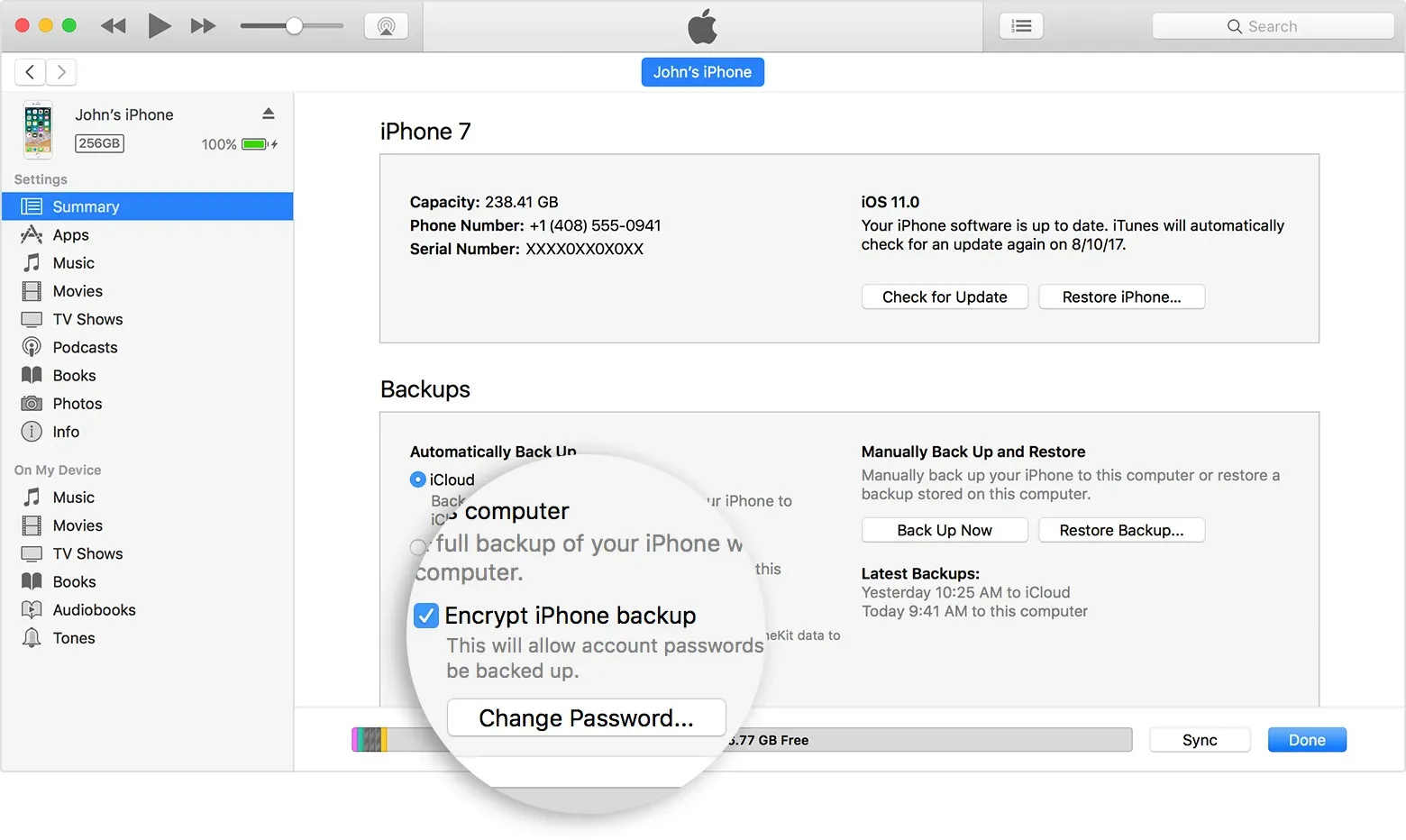Apple encrypted user accounts have become a focal point of debate following a controversial order from the U.K. government. This directive demands that Apple create a backdoor for officials to access iCloud backups, raising concerns over privacy and security. The order stems from the U.K.’s Investigatory Powers Act, often referred to as the Snoopers’ Charter, which allows law enforcement to circumvent encryption for investigative purposes. Apple’s Advanced Data Protection, introduced in 2022, utilizes end-to-end encryption, ensuring that even the company cannot access users’ data without consent. As discussions heat up around the implications of this decision, the tension between user privacy and government oversight continues to escalate, with significant implications for encrypted services worldwide.
The issue of Apple’s user account encryption has sparked a significant conversation about digital privacy and governmental authority. Following a directive from the U.K., authorities are pushing for tech companies to provide access to encrypted services, particularly iCloud backups. This situation raises critical questions about the balance between protecting citizens and ensuring law enforcement can combat crime effectively. The advanced encryption technologies, such as end-to-end encryption, are designed to safeguard personal data, yet they also present challenges for investigations into serious offenses. As the debate unfolds, the implications of such governmental orders on user privacy and corporate responsibility are becoming increasingly pertinent.
Understanding Apple’s Encryption Policies
Apple has long positioned itself as a champion of user privacy, particularly through its use of end-to-end encryption for services like iCloud. This encryption ensures that data is only accessible by the user, safeguarding sensitive information against unauthorized access. However, recent developments have put Apple’s encryption policies under scrutiny, especially with the U.K. government’s demand for a backdoor to access encrypted user accounts. Such measures raise critical questions about the balance between user privacy and national security.
The introduction of Advanced Data Protection by Apple marks a significant stride towards enhancing user security. This feature encrypts all iCloud backups, making it nearly impossible for anyone, including Apple itself, to access the data without the user’s explicit permission. Nevertheless, the U.K. government’s request poses a challenge to this robust framework, potentially setting a precedent that could compel other tech companies to comply with similar orders, thereby eroding the privacy rights of users globally.
The Implications of the U.K. Government’s Order
The U.K. government’s request for Apple to create a backdoor to encrypted accounts is rooted in the Investigatory Powers Act, also known as the Snoopers’ Charter. This law was designed to enhance law enforcement’s ability to combat crime by accessing digital communications. However, critics argue that such measures undermine the very principles of encryption, which are intended to protect user privacy and secure personal data. If enforced, this order could open the floodgates for further governmental intrusion into private communications.
Moreover, the implications of this order extend beyond the U.K. borders. If Apple complies, it could lead to a domino effect where other governments may demand similar access to encrypted data. This not only poses a threat to individual privacy rights but also raises concerns regarding international data security. As tech giants like Google and Meta have already expressed their refusal to comply with such demands, Apple’s decision will be closely watched and could influence the future of digital privacy laws worldwide.
Frequently Asked Questions
What is the impact of the UK government’s order on Apple encrypted user accounts?
The UK government’s order to Apple requires the company to create a ‘backdoor’ for accessing encrypted user accounts, specifically targeting iCloud backups. This means that UK officials could potentially access encrypted backups of all users worldwide, raising concerns about privacy and security.
How does Apple’s Advanced Data Protection affect iCloud backups?
Apple’s Advanced Data Protection feature enhances security for iCloud backups by implementing end-to-end encryption. This ensures that only users can access their data, as even Apple cannot decrypt the files without the user’s authorization, making it a strong defense against unauthorized access.
What is end-to-end encryption and how does it relate to Apple encrypted user accounts?
End-to-end encryption is a security measure that protects data by encrypting it during transmission and ensuring that only the sender and intended recipient can decrypt it. In the context of Apple encrypted user accounts, this means that iCloud backups are highly secure, and only users with the appropriate credentials can access their data.
Why are UK lawmakers concerned about Apple encrypted user accounts?
UK lawmakers are concerned that Apple’s encryption practices could hinder law enforcement efforts to investigate serious crimes. The ability of criminals to hide behind Apple encrypted user accounts using end-to-end encryption is viewed as a significant challenge in maintaining public safety.
What are the implications of the Snoopers’ Charter on Apple encrypted user accounts?
The Snoopers’ Charter, officially known as the Investigatory Powers Act, gives UK authorities broad powers to access encrypted data. This has implications for Apple encrypted user accounts as it may force Apple to comply with government demands to create backdoors, thereby potentially compromising user privacy.
Will Apple provide global access to encrypted iCloud backups as demanded by the UK government?
Apple has indicated that it may not offer Advanced Data Protection in the UK to comply with the government’s request. However, they are also resisting the idea of granting global access to encrypted iCloud backups, which could set a precedent for other tech companies.
What alternatives do other companies offer regarding encryption similar to Apple?
Similar to Apple, companies like Google and Meta also offer encryption for their services. Google has provided default encryption for Android data since 2018, while Meta offers encrypted backups for its messaging service, WhatsApp. Both companies have publicly stated they will not grant access to encrypted files, even under government orders.
How does the UK government’s stance compare to the US agencies regarding end-to-end encryption?
While UK officials have expressed concerns about end-to-end encryption impeding law enforcement, U.S. agencies like the FBI and NSA have started to recommend encryption as a protective measure against cyber threats. This difference highlights a divergence in how encryption is viewed in terms of privacy versus security.
| Key Points | Details |
|---|---|
| UK Government Order | The UK government has ordered Apple to create a ‘backdoor’ for accessing encrypted iCloud backups. |
| Worldwide Access | The order demands access to all user accounts globally, not just those in the UK. |
| Advanced Data Protection | Introduced in 2022, this feature encrypts iCloud backups, meaning even Apple cannot access them. |
| Government Concerns | Lawmakers fear encryption aids criminals and hampers law enforcement efforts. |
| International Recommendations | In contrast to the UK, U.S. agencies have begun recommending end-to-end encryption. |
| Apple’s Response | Apple may not offer Advanced Data Protection in the UK to comply with the order. |
| Implications for Other Tech Giants | If Apple complies, other companies like Google and Meta may face similar demands. |
Summary
Apple encrypted user accounts are at the forefront of a heated debate following the UK government’s order for Apple to create a backdoor into its iCloud backups. This controversial move raises significant concerns about privacy, security, and the implications for users globally. The introduction of end-to-end encryption by Apple was aimed at enhancing user security, but the UK government’s insistence on access poses a threat to this principle. As the situation evolves, the balance between law enforcement needs and individual privacy rights will be critically examined.








